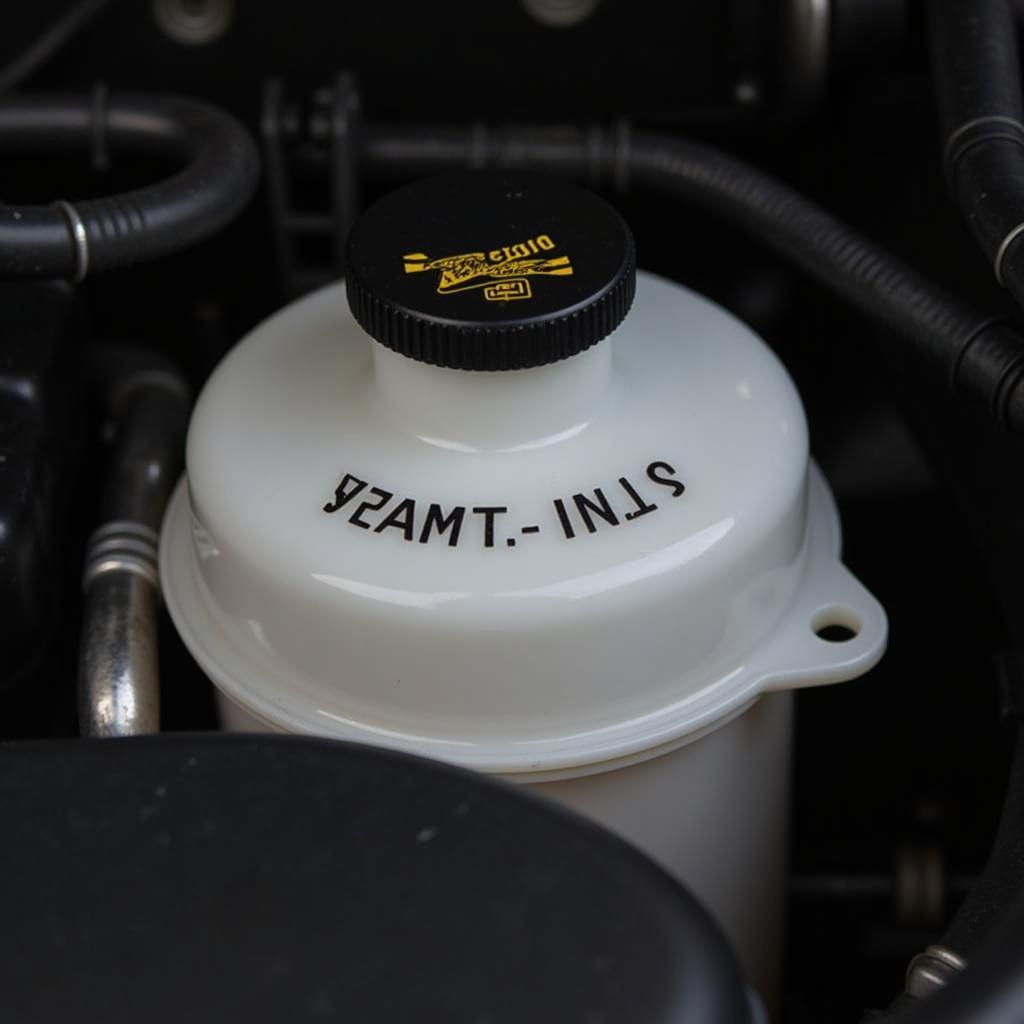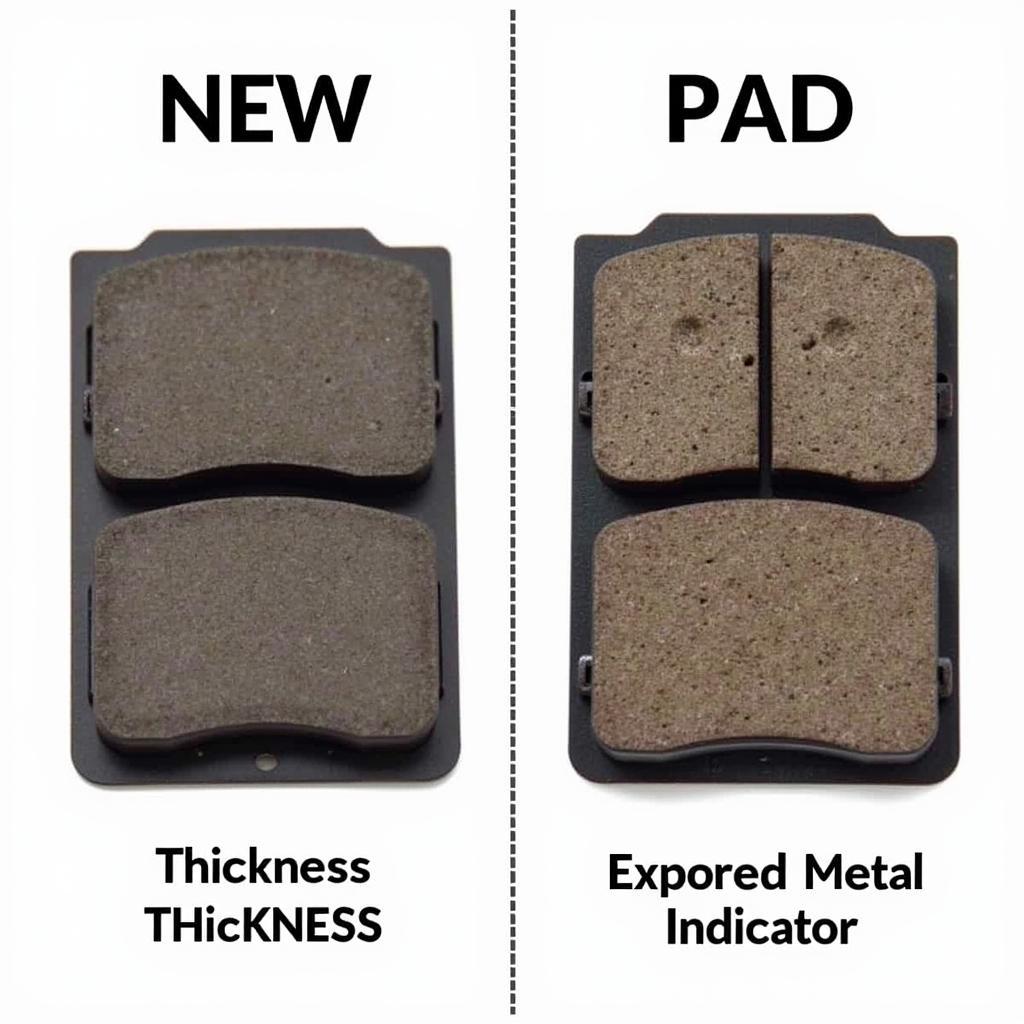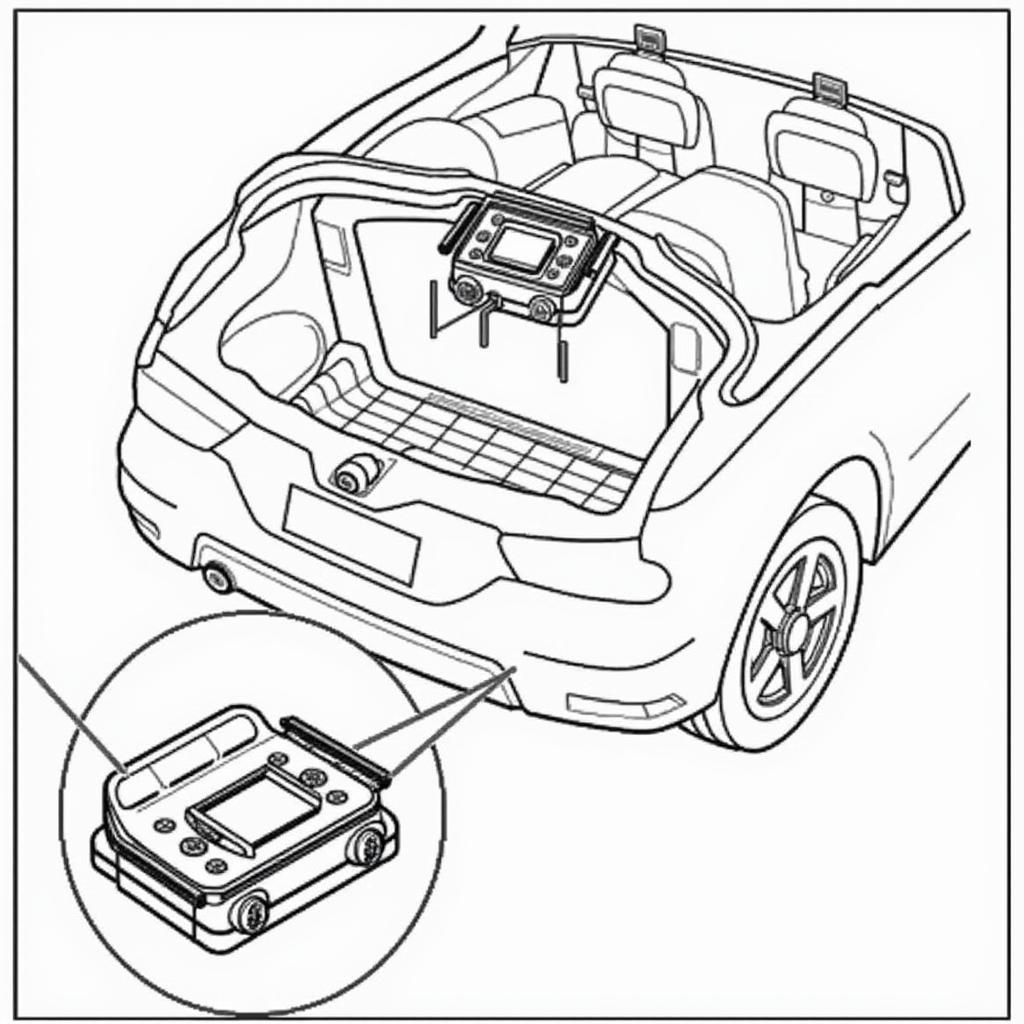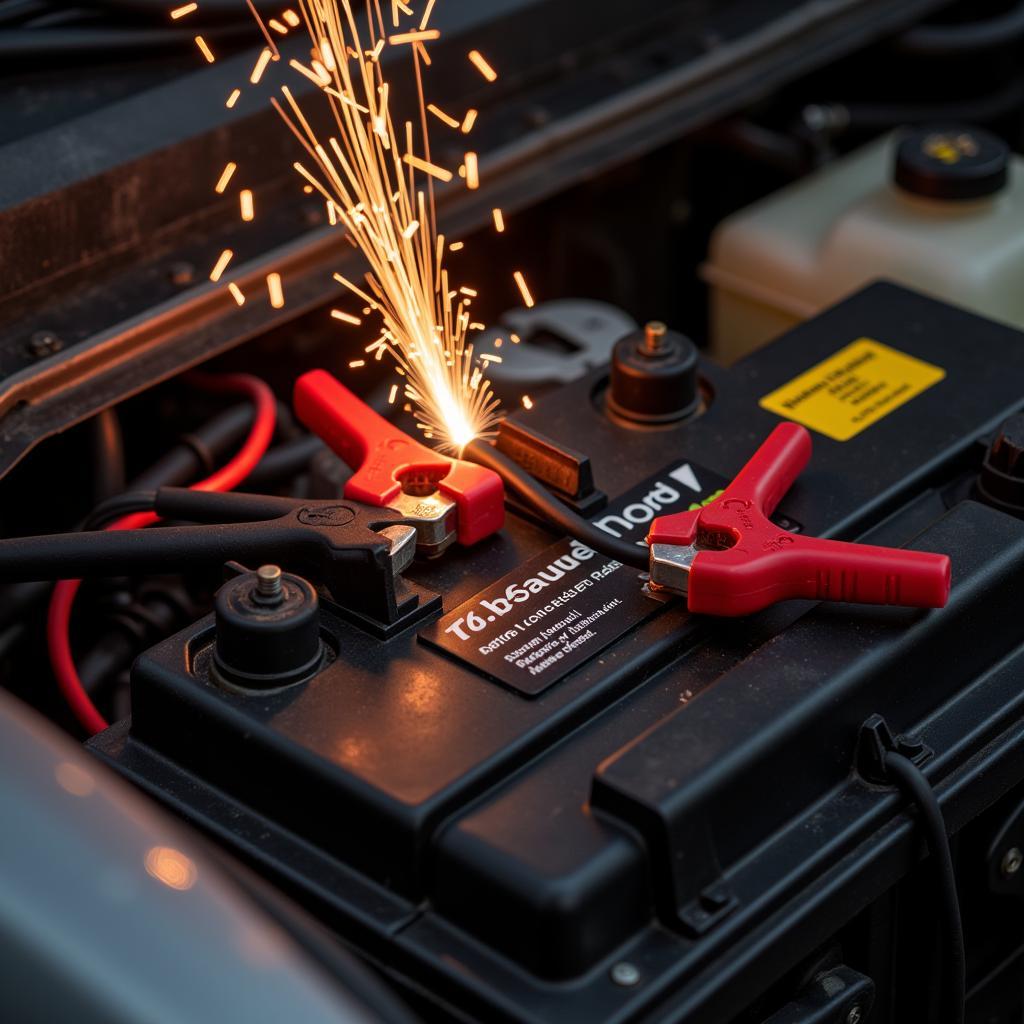The brake system warning light on your 2010 Prius is a crucial safety feature. When illuminated, it signals a potential issue within the braking system that requires your immediate attention. While it can be alarming to see this light, understanding the common causes and knowing how to troubleshoot the problem can save you time, money, and potential danger on the road.
Common Causes of a Prius 2010 Brake System Warning Light
Several factors can trigger the brake system warning light in your 2010 Prius. Let’s explore some of the most common culprits:
1. Low Brake Fluid Level
One of the most frequent reasons for the warning light is a low brake fluid level. Brake fluid is the lifeblood of your braking system, transmitting the force from your foot on the brake pedal to the wheels, enabling the car to stop.
Why does brake fluid level drop?
-
Brake Pad Wear: As your brake pads wear down over time, the brake calipers need more fluid to compensate for the reduced pad thickness. This can lead to a lower fluid level in the reservoir.
-
Brake Fluid Leak: A leak anywhere in the braking system, such as in the lines, hoses, or calipers, can result in a loss of brake fluid and trigger the warning light.
 Brake Fluid Reservoir
Brake Fluid Reservoir
2. Worn Brake Pads
Brake pads are designed to wear down gradually with use. When they reach a certain level of wear, a sensor within the brake pad assembly triggers the warning light on your dashboard.
How do I know if my brake pads are worn?
-
Warning Light: The illuminated brake system warning light is the most obvious indicator.
-
Screeching or Grinding Noise: Worn brake pads often produce a high-pitched screeching or grinding sound when you apply the brakes.
-
Vibration: You might feel a pulsing or vibrating sensation in the brake pedal when applying the brakes.
 Worn Brake Pads
Worn Brake Pads
3. Faulty Brake Light Switch
While it may seem unrelated, a faulty brake light switch can also trigger the brake system warning light. This switch is responsible for activating your brake lights when you press the brake pedal. If the switch malfunctions, it can disrupt the signal to the brake lights and the brake system warning system.
4. ABS System Malfunction
The Anti-lock Braking System (ABS) is a vital safety feature that prevents your wheels from locking up during hard braking. If the ABS system detects a problem, it can trigger the brake system warning light.
What are the signs of an ABS problem?
-
ABS Warning Light: In some cases, a separate ABS warning light might illuminate on the dashboard.
-
Unusual Braking Behavior: You might experience unusual sensations while braking, such as pulsating or a grinding noise, indicating a potential issue with the ABS system.
 ABS Control Module
ABS Control Module
Troubleshooting a Prius 2010 Brake System Warning Light
Before attempting any DIY troubleshooting, remember safety comes first. If you are unsure about any step or suspect a serious issue, it’s crucial to consult a qualified mechanic immediately.
Here’s a step-by-step guide:
-
Check Brake Fluid Level:
- Park your car on a level surface and engage the parking brake.
- Locate the brake fluid reservoir (refer to your owner’s manual if needed).
- Check the fluid level, ensuring it’s between the “MIN” and “MAX” markings on the reservoir.
-
Inspect Brake Pads:
- If you have the necessary tools and experience, you can visually inspect your brake pads for wear.
- Look for significant wear and tear or if the pad thickness is close to the wear indicator.
-
Test Brake Lights:
- Have a friend or family member help you check if your brake lights are working correctly when you press the brake pedal.
When to Seek Professional Help
While some issues might be simple to address, others require the expertise of a qualified mechanic. Here are instances when you should seek professional help:
- You are uncomfortable or unfamiliar with any troubleshooting step.
- You suspect a brake fluid leak or see visible signs of leakage.
- You are experiencing unusual braking behavior, such as pulling to one side or a spongy brake pedal.
- Your brake system warning light remains illuminated even after adding brake fluid or replacing worn brake pads.
Conclusion
Addressing the brake system warning light on your 2010 Prius promptly is essential for your safety and the longevity of your vehicle. By understanding the common causes and knowing how to troubleshoot the issue, you can ensure a safe and enjoyable driving experience. However, always remember that if you are ever unsure about any aspect of your brake system, it’s best to err on the side of caution and seek professional help.

